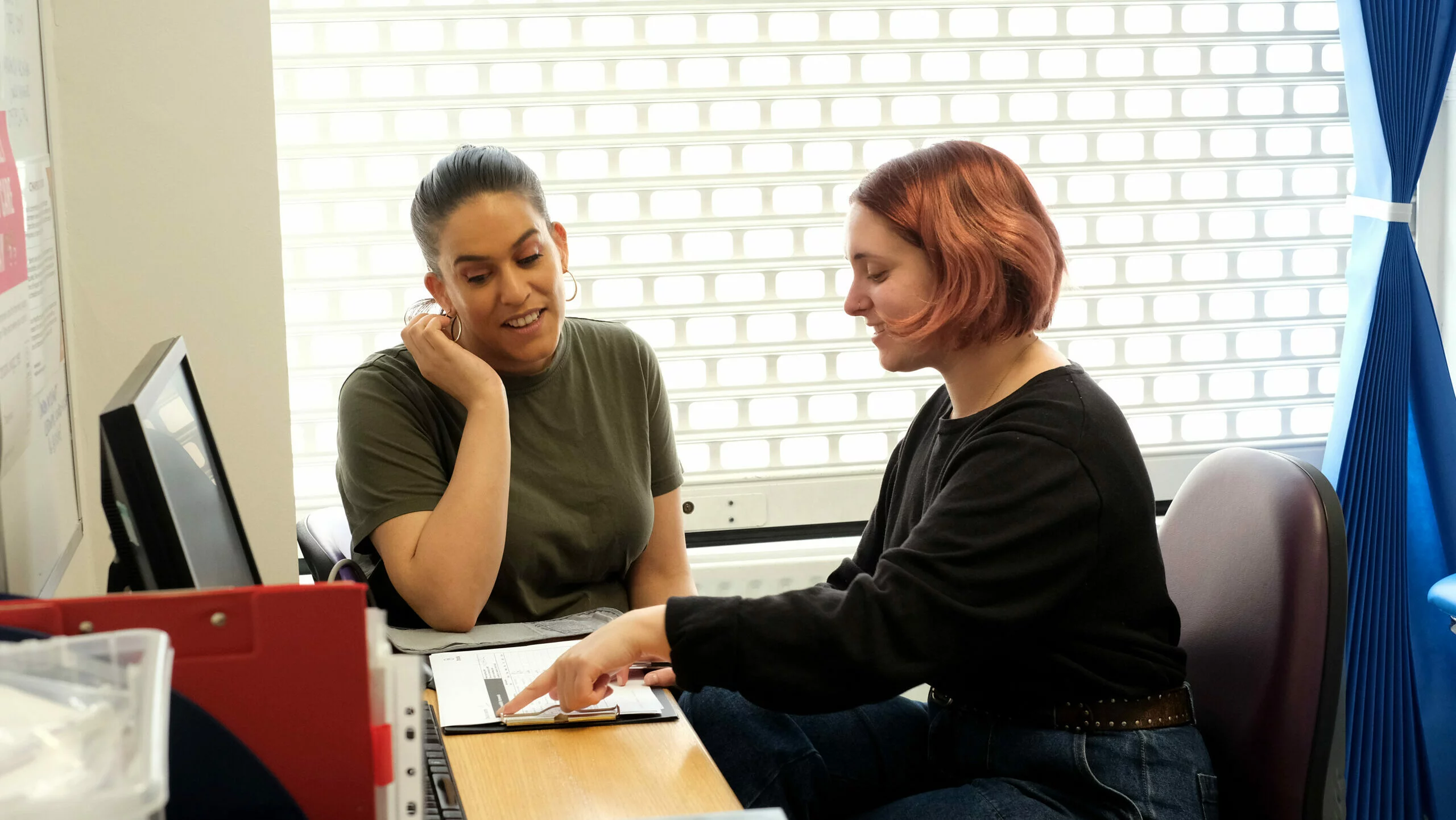For #SHW24 we’re exploring the links between mental health and sexual health. Ceri Evans, BASHH Board Member and President of the Society of Sexual Health Advisers explains why an integrated approach to clinical care for both mental and sexual health is so important.
The challenges that face sexual health services in the UK are stark. As it stands, we are seeing the highest rates of syphilis since 1948 and more gonorrhoea than at any other point since records began. These challenges are also compounded by the fact that mental health support, essential for holistic care, is being widely sidelined due to stretched resources.
Mental and sexual health can be deeply interconnected, with each influencing the other in significant ways. While some may define ‘good sexual health’ simply as the absence of infections or dysfunction, the reality is far more complex. Similarly, ‘good mental health’ is not just the absence of illness but encompasses emotional, psychological, and social wellbeing. Understanding the bidirectional relationship between these two aspects of health is crucial to providing care that addresses all aspects of a person’s wellbeing.
Sexual health concerns, such as STIs, contraception, and pleasure, often carry a psychological component derived from social stigmatisation. Unaddressed, these concerns can lead to anxiety about relationships or long-term health consequences. Conversely, individuals experiencing mental health issues have the propensity to experience complications with their sexual wellbeing. For example, the third National Survey of Sexual Attitudes and Lifestyles (Natsal-3) found that depression was strongly associated with sexual risk behaviours, like condomless sex with a new partner. This intricate relationship highlights the necessity of a new sexual health strategy, informed by experts, service users, and front-line professionals, that incorporates mental health support.
Opportunities and Approaches to Support Mental Health
If given the means and training to do so, multidisciplinary approaches such as motivational interviewing (MI) and brief interventions, can be powerful tools in addressing both sexual and mental health. MI is a patient-centred approach that helps individuals explore their motivation for change, such as adopting safer sexual practices or addressing underlying mental health challenges. Sexual health staff can create a non-judgmental environment where patients feel comfortable discussing sensitive issues, empowering them to make positive changes that improve both their sexual and mental wellbeing.
Brief interventions – focused, structured conversations integrated into routine care – are also effective in promoting healthier behaviours and helping patients make meaningful changes. When services are provided with the necessary time and training, such tools help to enable a more comprehensive, expert-led, and patient-centred care that can plant the seeds for both good mental and sexual health.
Improving Sexual and Mental Health Outcomes
However, our ability to deliver care that integrates both mental and sexual health needs is hampered by ongoing workforce shortages and insufficient funding. Increased demand for sexual health services, coupled with an £880m reduction in the Public Health Grant between 2015 and 2024, has significantly strained the system.
We urgently need a workforce equipped to meet both the sexual and mental health needs of our communities.
Without sufficient resources, sexual health services cannot deliver the holistic care that service users deserve. First-hand experience shows that, when left unaddressed, sexual health concerns can lead to anxiety about relationships, body image, or long-term health.
To address this, we must prioritise the recruitment and retention of genitourinary medicine (GUM) doctors, nurses, Sexual Health Advisers, and other sexual health professionals through campaigns like BASHH’s LoveGUM initiative. Building a robust workforce – comprised of well-structured, multi-disciplinary teams that can deliver the best outcomes for patients – is essential to ensuring that both mental and sexual health needs can be met for future generations.
The Need for a Comprehensive Approach
Sexual health professionals are uniquely positioned to provide care that considers the intricate connection between mental and sexual health. Our expert role goes beyond addressing individual symptoms; we aim to approach the broader factors contributing to a patient’s overall wellbeing. Whether it’s managing the emotional impact of an STI diagnosis or addressing mental health conditions that influence sexual behaviour, our ambition is always to create a space where patients feel safe discussing their concerns, leading to better outcomes for both mental and sexual health.
Despite the challenges confronting services, sexual health clinics across the UK are ready to provide the advice, treatment, and support which helps empower patients to make positive changes in their lives. Encouraging people to visit their local sexual health clinic not only promotes proactive sexual health but also opens the door to relevant mental health support for those in need. This integrated approach helps create a healthier, more inclusive society where everyone can access the care and support they need to thrive.




